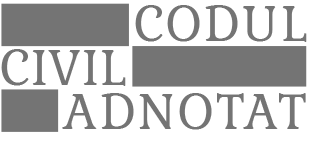Article 34. The General Meeting and its Authority
(1) The general meeting is the supreme governing body of the association and is comprised of all the condominium owners.
(2) The resolutions of the general meeting, when passed according to the legal requirements, are binding on all condominium owners, including those who did not attend the meeting or voted against the resolutions, as well as for all other bodies of the association.
(3) The general meeting has the exclusive authority to:
a) approve amendments and supplements to the association’s charter or approve a recast of the charter;
b) approve the annual budget of the association, which includes projected incomes and expenses;
c) approve the size of the contributions to the maintenance fund and other contributions provided for by this law;
d) approve any use of the maintenance fund’s resources that are not covered by the approve annual budget;
e) approve the annual reports from the association’s various bodies;
f) approve the annual financial statements;
g) approve the terms for contracts for necessary maintenance, repairs, and updates to shared spaces, including energy efficiency improvements, and decide on the budget for these activities; if needed, set the amount each owner needs to contribute to cover these expenses;
h) approve the terms and conditions of contracts entered into by the association for intermediated services save as provided in Article 49 paragraph (2);
i) select and dismiss, prior to the end of their office, the association’s administrator, the council members (including the council’s chairperson, where appropriate), and the auditing committee (auditor), as well as members of any other bodies established by the general meeting;
j) approve the remuneration for the association’s administrator and the auditing committee (auditor), along with any other employment or contracting terms;
k) approve, amend, or repeal the condominium regulation and any other regulations of the association;
l) approve the annual and medium-term (2-3 years) strategy concerning the administration, service provision, operation, reconstruction, modernization, refurbishment, and other development activities related to the condominium;
m) approve the conditions under which a manager is chosen; elect and dismiss the manager; approve the terms of the management contract and any amendments thereto;
n) approve the terms under which the association takes on repayable financing (loans, credit, leasing, etc.);
o) agree to accept legal liability and to make payments on behalf of the association to those whom the association is responsible for under Article 18 paragraph (8), except where the association is required to pay compensation according to a final court judgment or payments made by an insurance company under a policy that covers the respective risk;
p) decide on actions and measures directly linked to the maintenance and repair of shared spaces, the provision of services for the condominium units, as well as the service and social needs of the association’s staff;
q) determine the allocation method for expenses to cover discrepancies between the measurements from meters installed at the condominium’s connection or part of the condominium and those installed in individual units, unless already specified;
r) approve the terms for leasing out common parts;
s) expresses an opinion on the draft amendment to the act establishing the condominium;
t) approves to install or keep any equipment on common parts, such as:
– surveillance cameras;
– antennas, transmitters, and other devices capable of emitting radiation;
– advertising signs and other displays that influence the architectural appearance of the condominium;
– electronic key entry systems;
– entry barriers and fencing;
u) pass other resolutions within the general meeting’s powers as per this law.
(4) It is forbidden to restrict the authority of the general meeting as stated in paragraph (3) or to delegate them to another body of the association or to another person.
(5) The charter may attribute additional authority to the general meeting.
(6) The general meeting may deliberate on any matter not listed in paragraph (3). If the issue falls within the authority of another body within the association, that body’s opinion should be considered in the deliberation of the matter; however, failure to do so does not affect the lawfulness of the general meeting’s resolution.
(7) The general meeting passes resolutions by open vote unless the meeting decides on a different procedure.
(8) The general meeting passes resolutions either in-person presence of the owners, by correspondence, or using a combination of both methods, as detailed in Articles 35-43.
(9) Instead of calling and holding a formal the general meeting, resolutions can be passed by obtaining the written consent of the owners holding at least two-thirds of the total voting rights of the condominium, provided that the complete text of the resolution is presented on the same page as the signatures, and the association in question is clearly identified. In such instances, meeting minutes are not required.
(10) The written resolution mentioned in paragraph (9) may also be initiated by the administrator or by any condominium owner during an in-person general meeting, provided that the absent condominium owners are subsequently informed within 15 days about the resolution and are given the opportunity to sign. If the necessary number of signatures is not collected within 30 days, the resolution is considered not passed.
